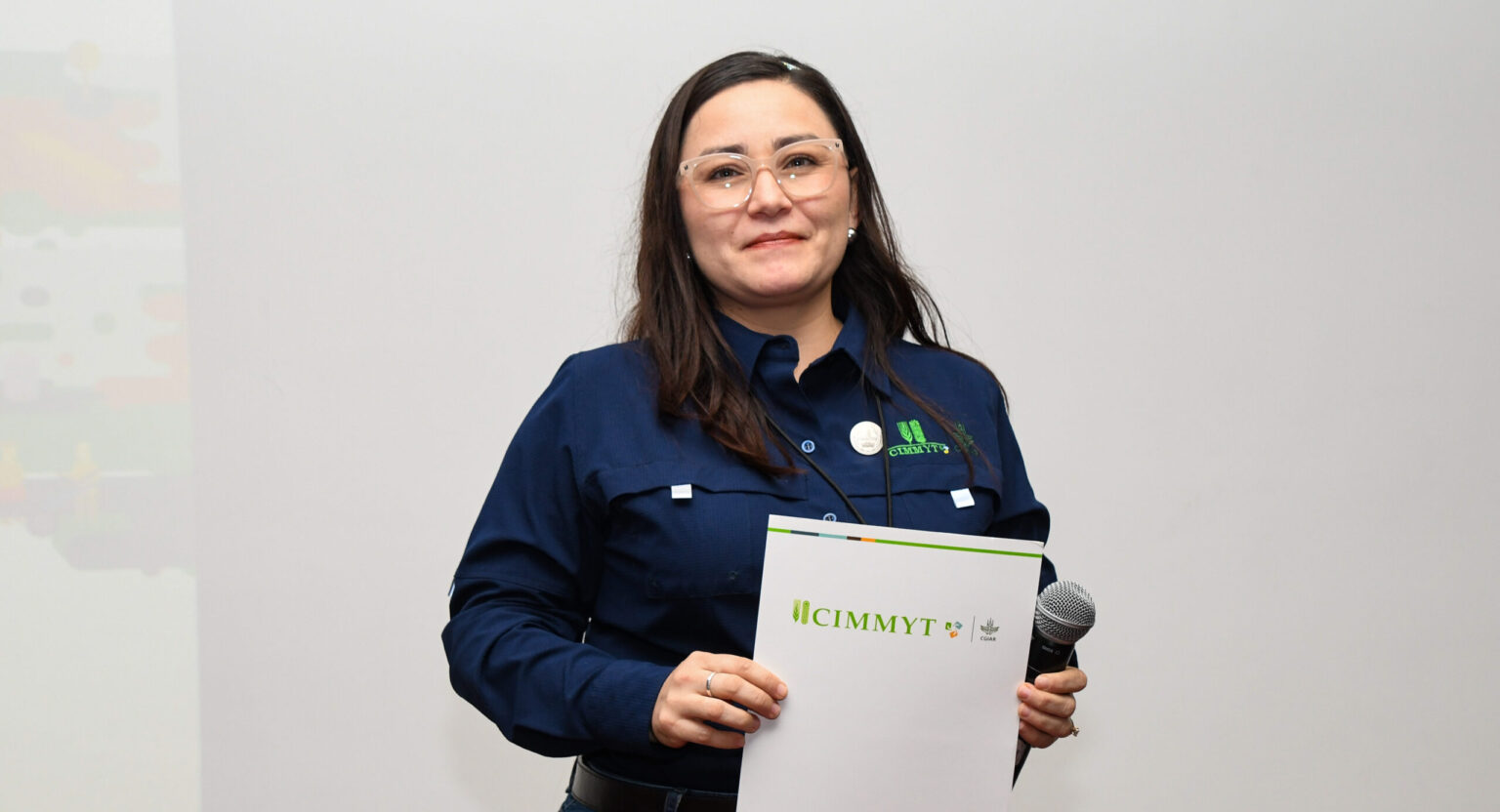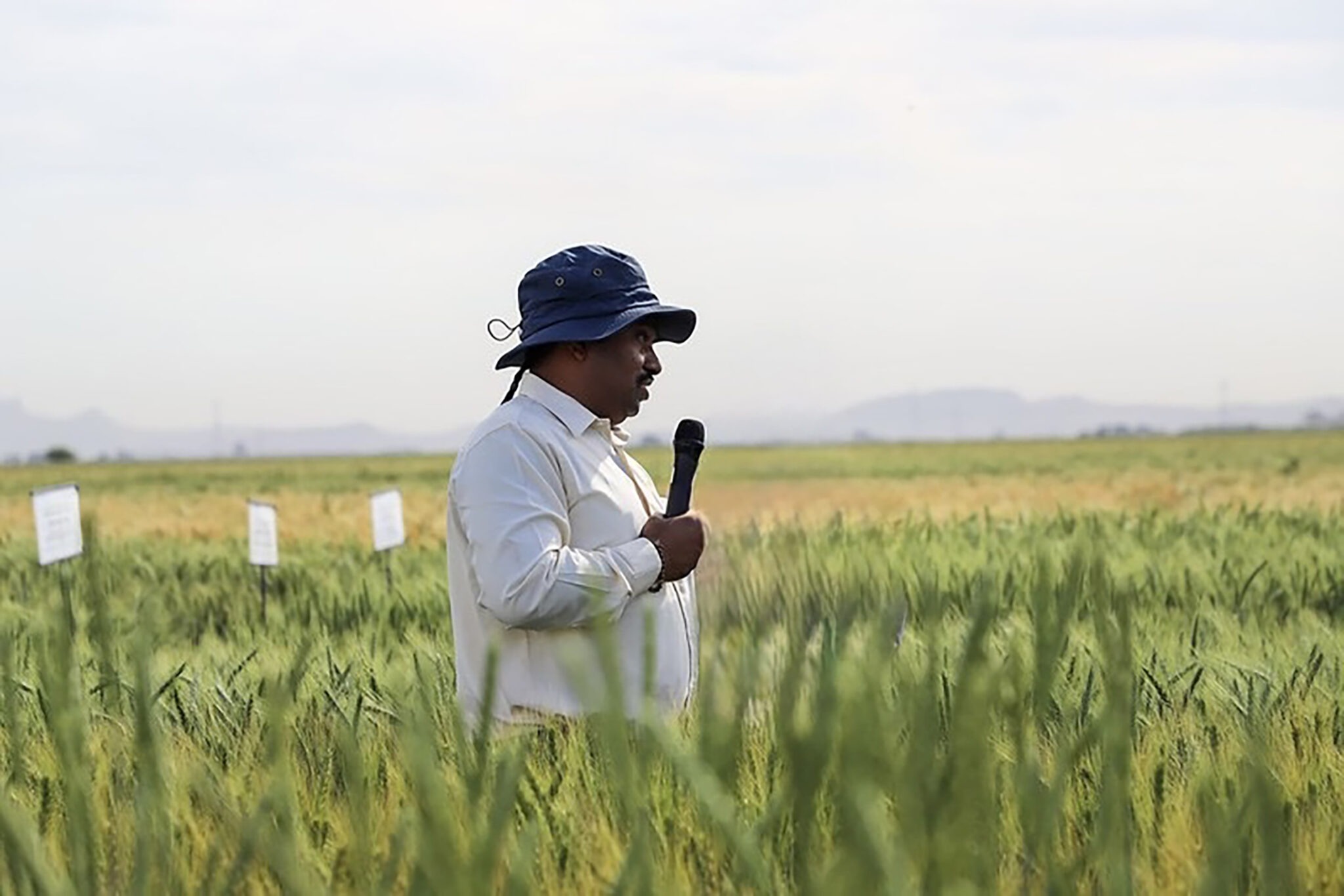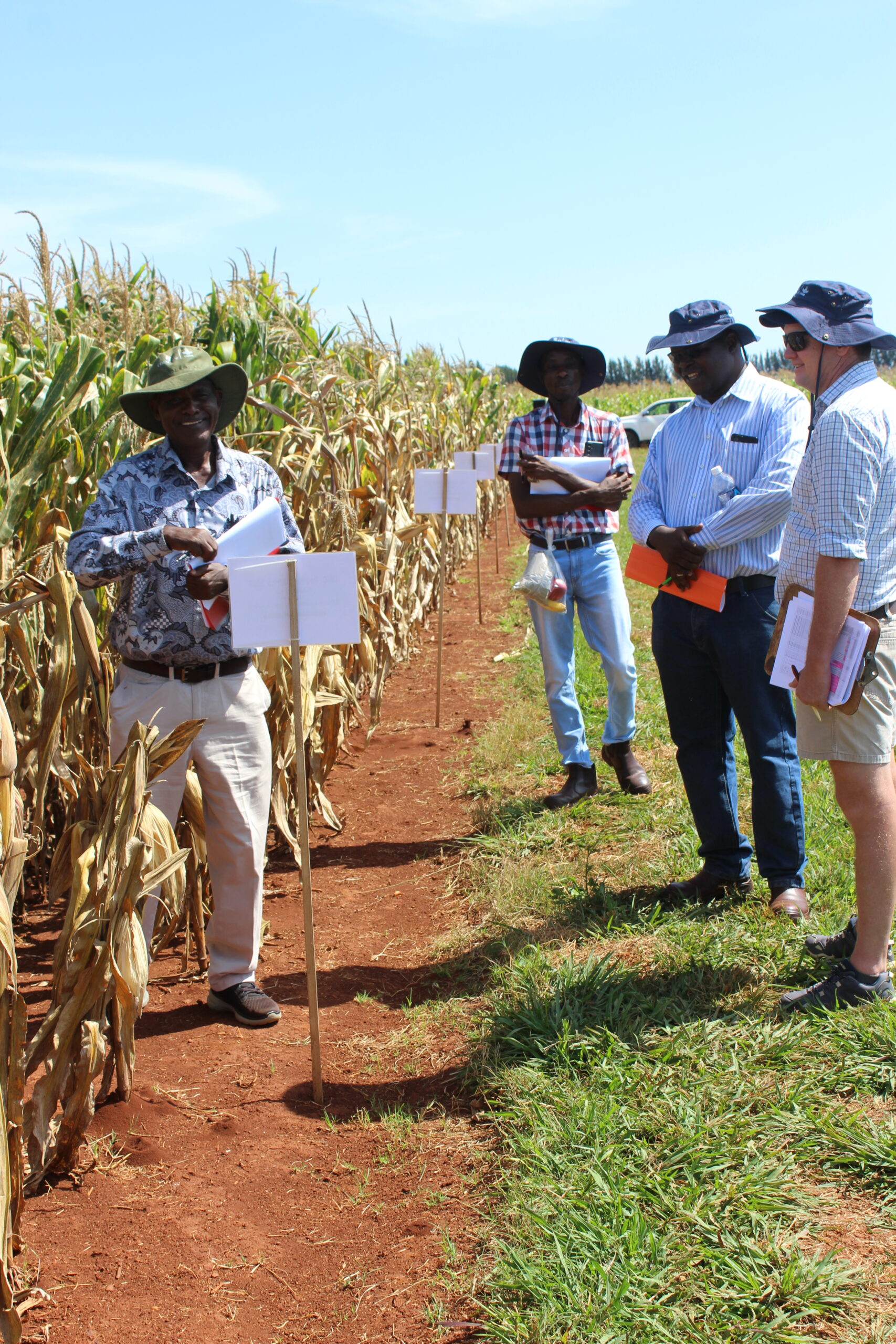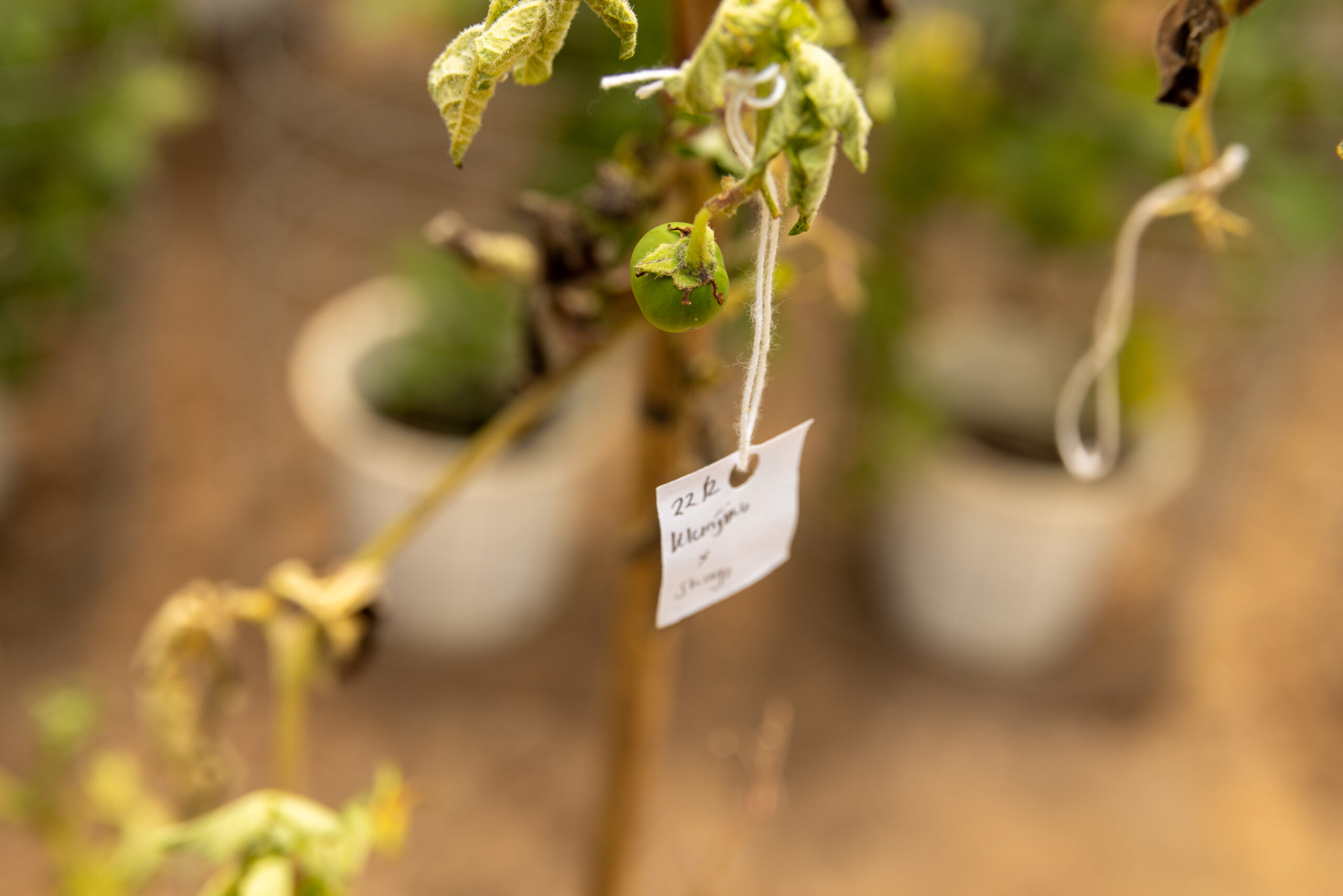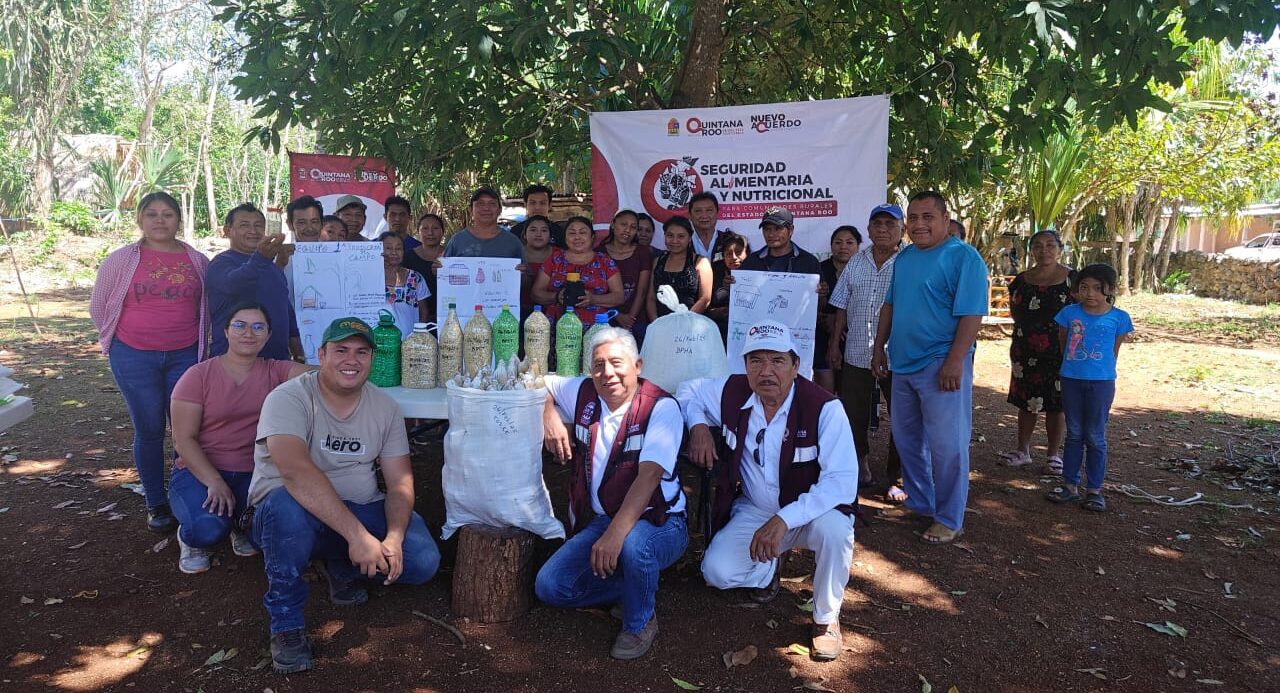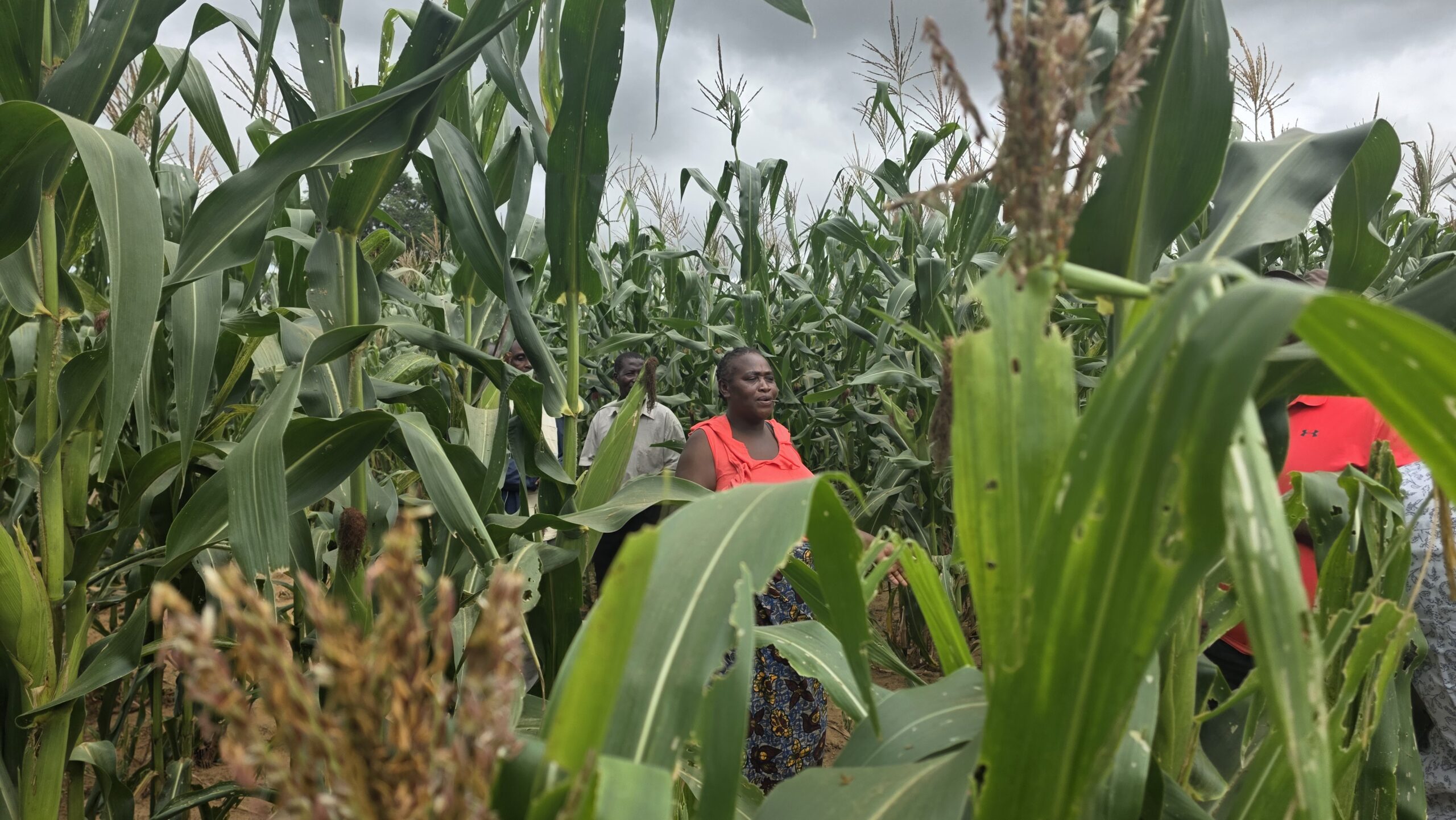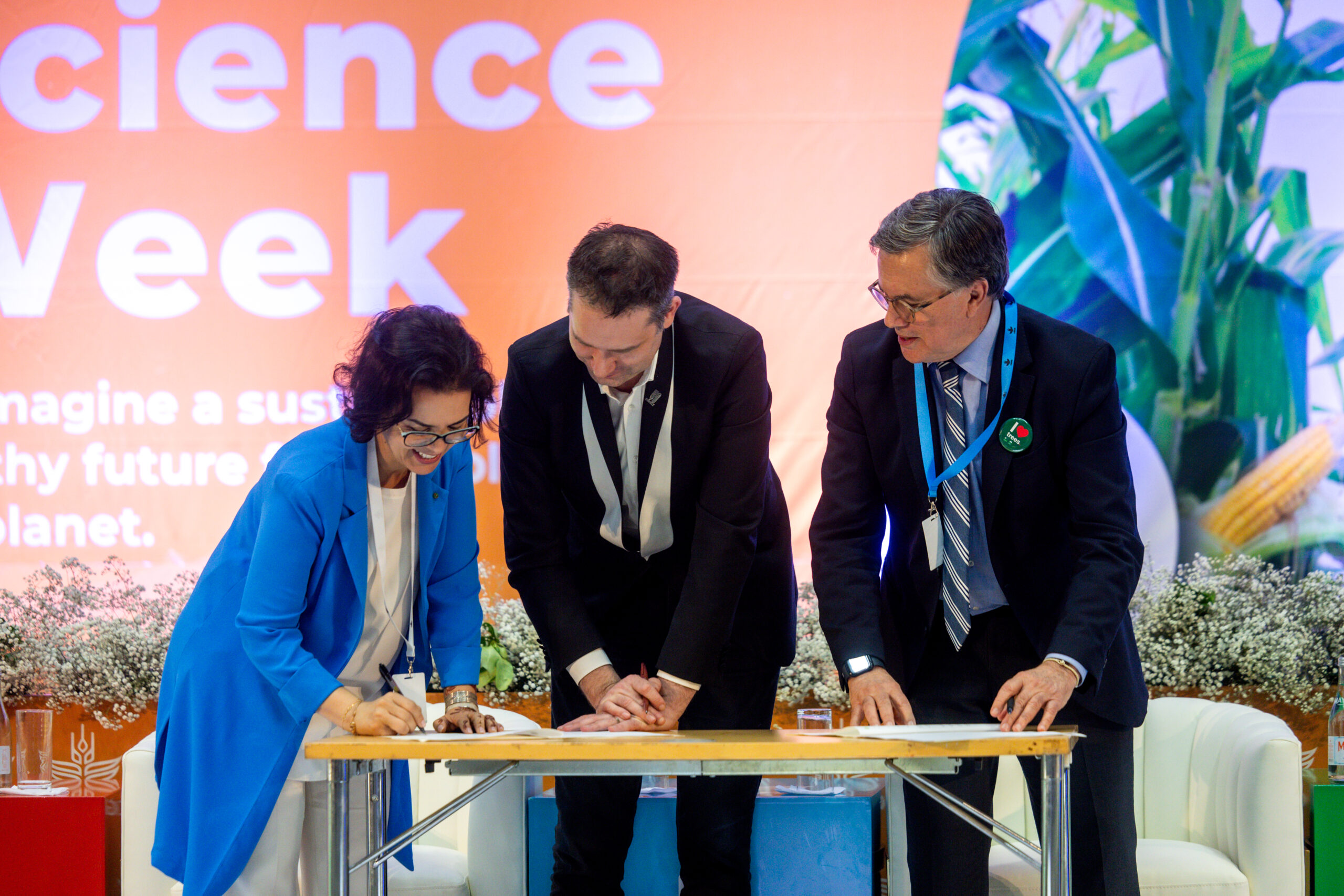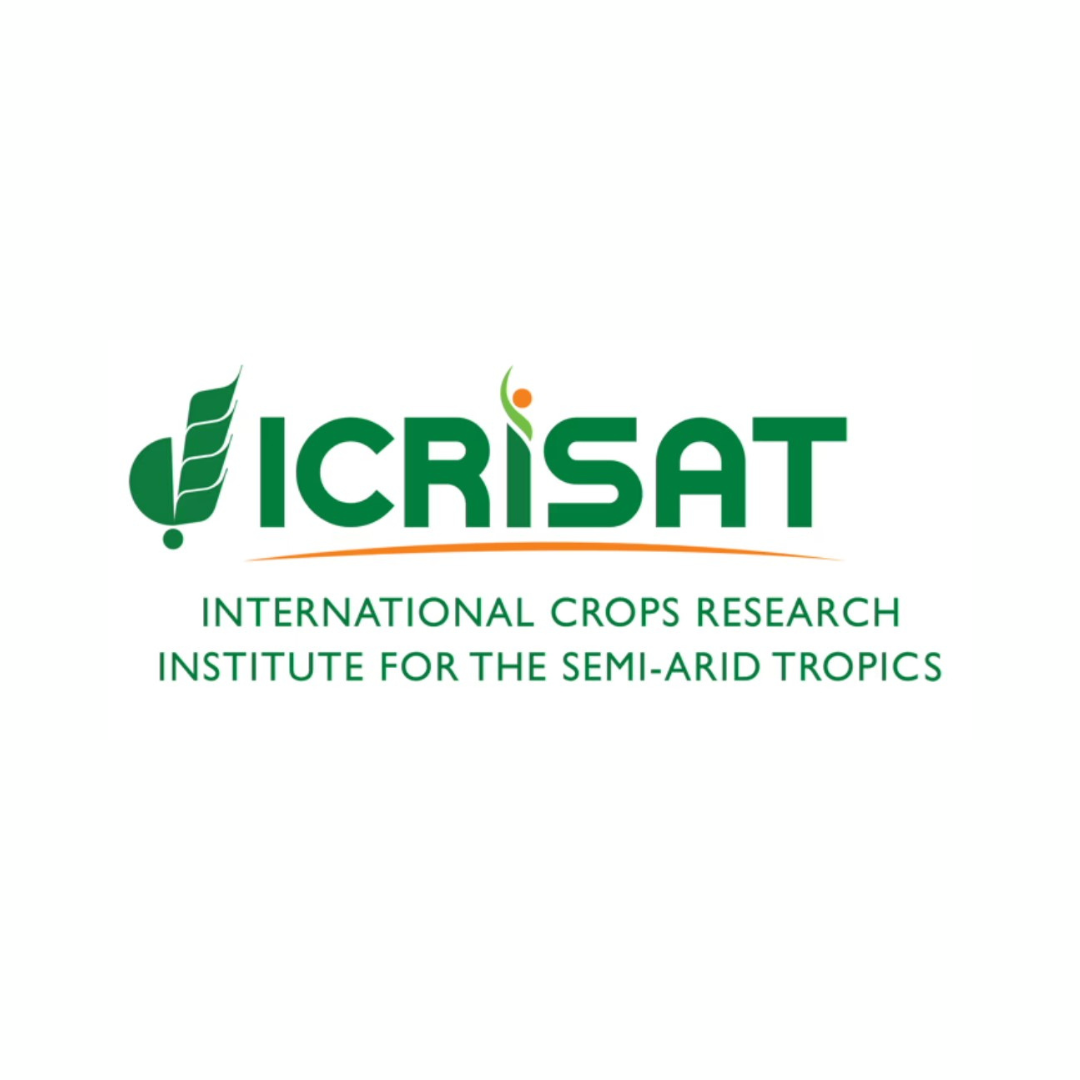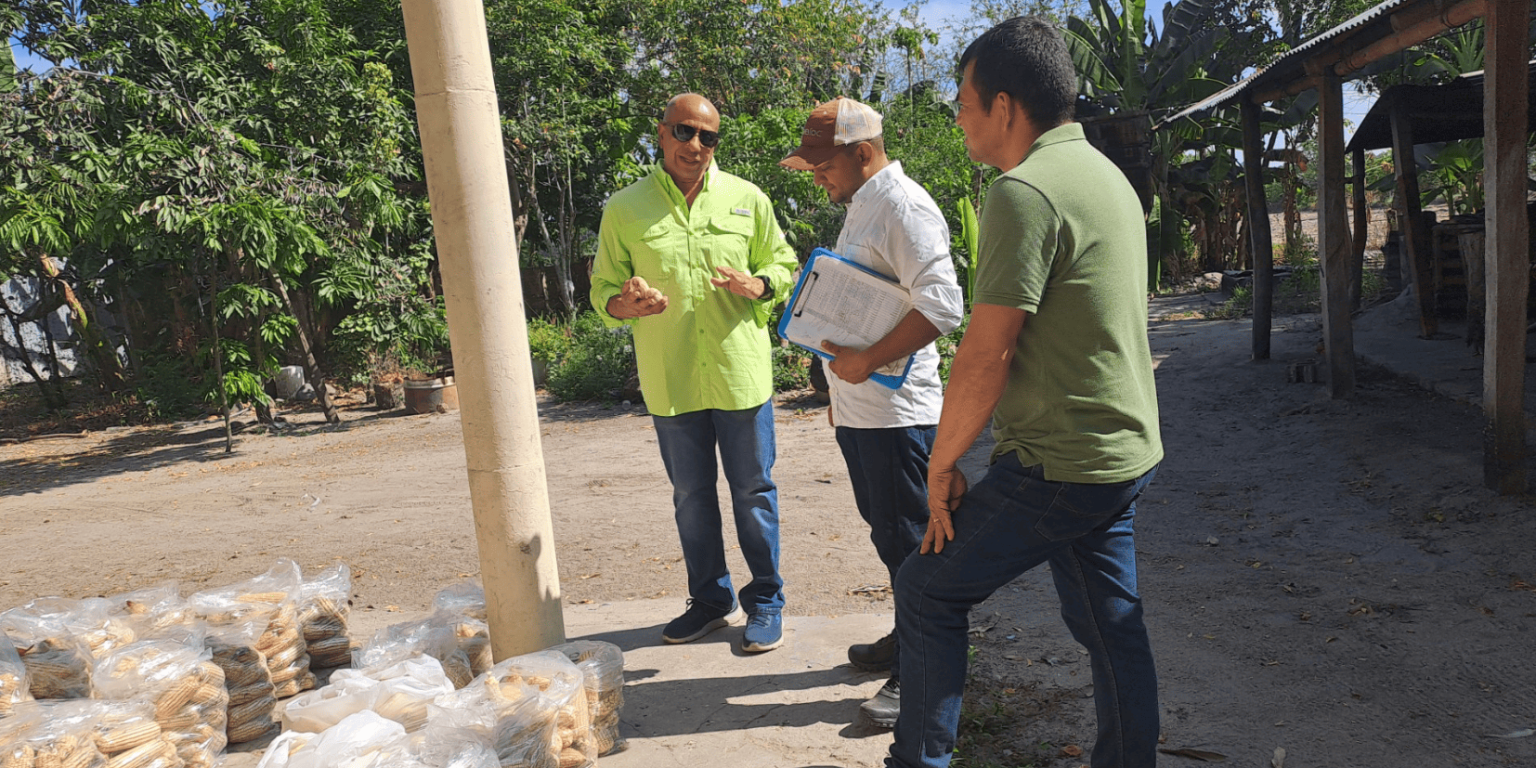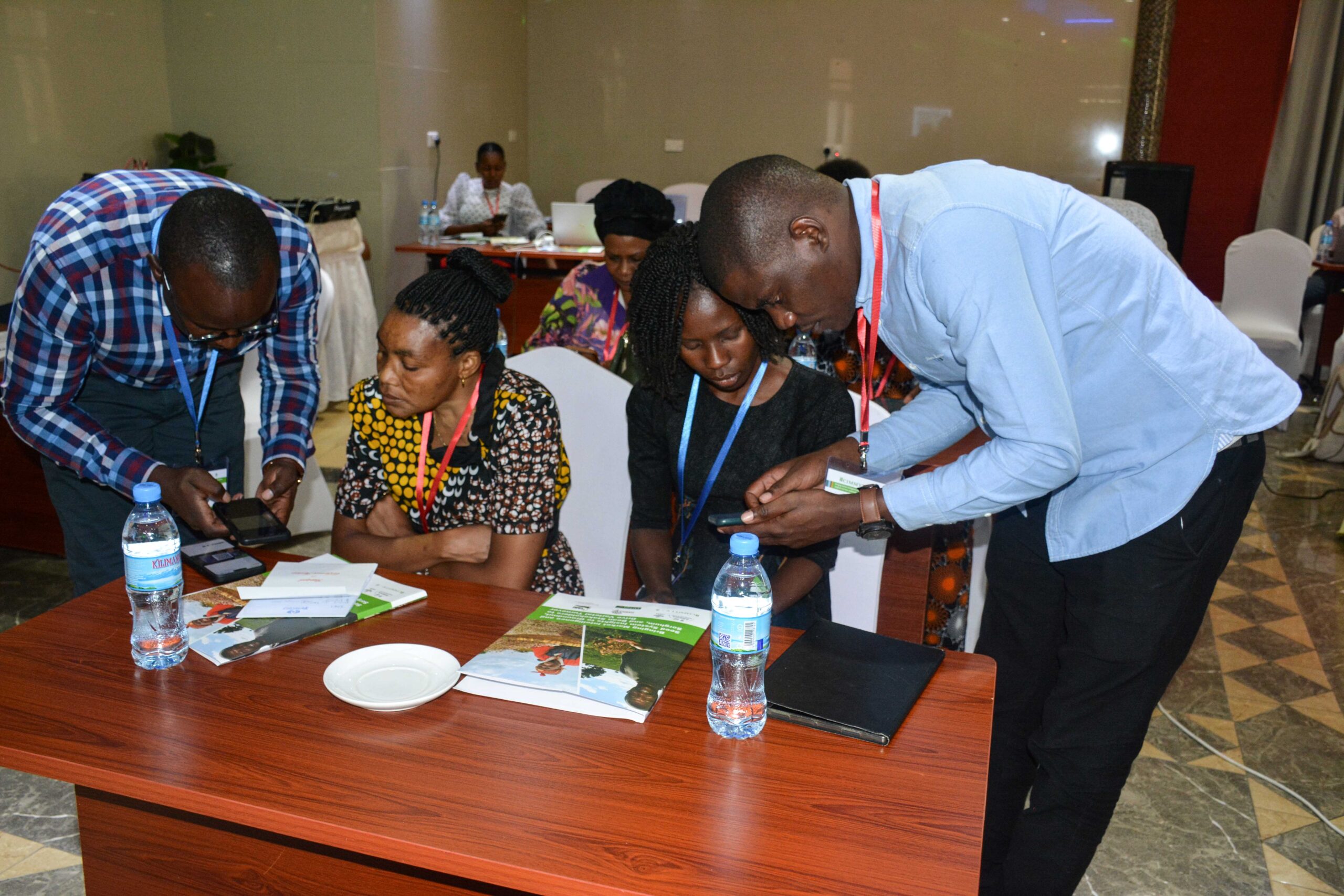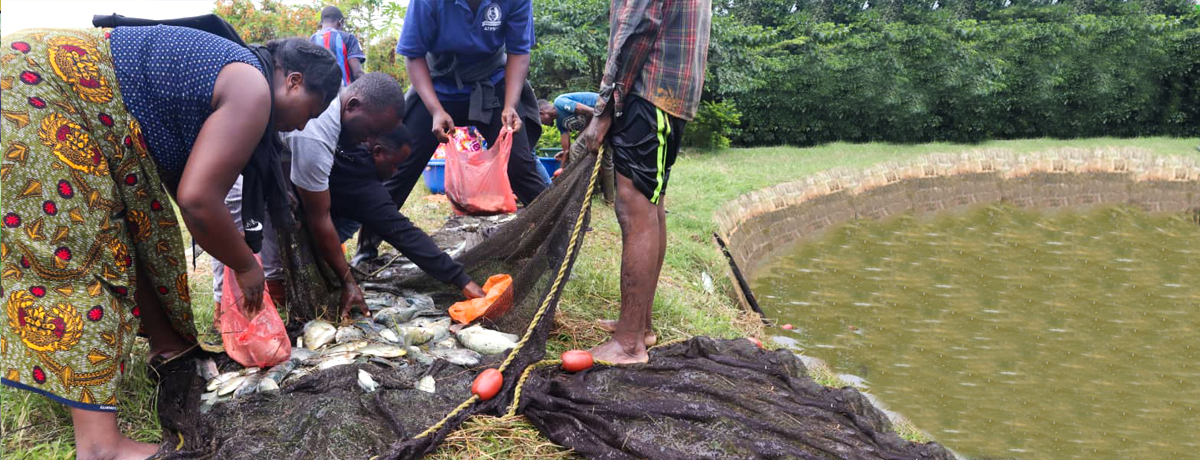Capacity development
CIMMYT training courses play a critical role in helping international researchers meet national food security and resource conservation goals. By sharing knowledge to build communities of agricultural knowledge in less developed countries, CIMMYT empowers researchers to aid farmers. In turn, these farmers help ensure sustainable food security. In contrast to formal academic training in plant breeding and agronomy, CIMMYT training activities are hands-on and highly specialized. Trainees from Africa, Asia and Latin America benefit from the data assembled and handled in a global research program. Alumni of CIMMYT courses often become a significant force for agricultural change in their countries.
Women in agronomy: the journey of Carolina Cortez
 Capacity development
Capacity development
Carolina Cortez, agronomist, promotes female leadership in agriculture and transforms the field with innovation and dedication
Proudly announcing the 2025 Derek Tribe Award recipient – Velu Govindan
 Capacity development
Capacity development
CIMMYT’s Dr. Velu Govindan wins the 2025 Derek Tribe Award for advancing climate-resilient, nutrient-rich wheat to boost global food security.
IMIC-Africa Field Day 2025: Where science meets collaboration to accelerate maize innovation in Africa
 Capacity development
Capacity development
IMIC-Africa Field Day 2025 brought together science, seed innovation, and collaboration across Africa to fast-track resilient, high-yield maize solutions from lab to farm.
How Crops to End Hunger is transforming CGIAR crop breeding from the ground up
 Capacity development
Capacity development
Crops to End Hunger is modernizing CGIAR breeding systems to boost impact, speed, and inclusivity—transforming how we breed for tomorrow.
With Innovations, They Protect Maize Biodiversity
 Capacity development
Capacity development
Empowering rural women in Quintana Roo through training and inclusive innovation, this initiative strengthens native maize conservation, enhances food security, and promotes gender equity in agriculture
Sowing knowledge, Reaping impact: Lydia’s journey from trial farmer to community leader in Monze, Zambia
 Capacity development
Capacity development
Lydia Siankwede’s journey highlights how participatory research empowers smallholders to build resilience and boost productivity in Zambia
CIMMYT Appoints Flavio Breseghello as Global Wheat Program Director
 Capacity development
Capacity development
CIMMYT has appointed renowned wheat breeder Flavio Breseghello as Director of the Global Wheat Program to lead innovative, climate-resilient research at a critical time for global food security
Pest and disease attacks on crops rising due to climate change: Scientist
 Capacity development
Capacity development
Source: Business Standard ()
Climate change is accelerating pest and disease outbreaks in agriculture, prompting experts to call for urgent, science-based interventions to protect crop yields and food security
Strengthening One Health Approach in Agriculture Requires Cross-Sectoral Partnerships, Information
 Capacity development
Capacity development
Source: MSN ()
CIMMYT is supporting the One Health approach through research linking livestock health, sustainable farming, and food security
CIMMYT and IICA Partner to Strengthen Agricultural Innovation and Economic Growth in the Americas
 Capacity development
Capacity development
CIMMYT and IICA have joined forces through a new partnership to drive agricultural innovation, climate resilience, and economic growth across the Americas by connecting science to farmers and markets
A transformative leap in effective subaward implementation: Inside the revitalized sorghum and millets breeding programs at ZARI
 Capacity development
Capacity development
Through strategic leadership and support from CIMMYT, ZARI is emerging as a model for agricultural innovation and climate resilience, showcasing the power of science-driven collaboration to strengthen national research systems across sub-Saharan Africa
Building IP Capacity Across Nations: ICRISAT’s South-South Training Sparks Cross-Country Learning
 Capacity development
Capacity development
Source: ICRISAT ()
CIMMYT’s participation in the ITEC IPR training highlights its commitment to advancing innovation management and policy for sustainable agriculture
Colombia moves toward a more sustainable agriculture with the Hub methodology
 Capacity development
Capacity development
Colombia boosts agri-food sustainability with the Hub methodology, an innovation strategy that strengthens corn production through collaboration and knowledge sharing
Driving Varietal Turnover: Insights from Market Intelligence and Seed Systems in Tanzania
 Capacity development
Capacity development
The workshops convened by CIMMYT and partners in Tanzania explored market intelligence and seed system strategies to accelerate varietal adoption and turnover for groundnut, sorghum, and bean stakeholders
An entrepreneur’s journey in aquaculture: Fueled by partnership, innovation, and resilience
 Capacity development
Capacity development
Cosmas Chachi’s journey into sustainable aquaculture, supported by AID-I, exemplifies how innovative, community-driven solutions can meet market demands, and improve nutrition while empowering rural livelihoods in Zambia
